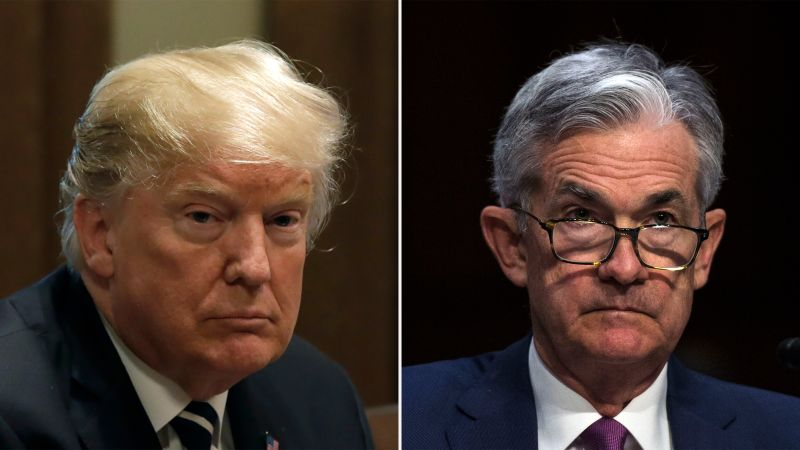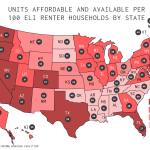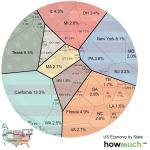In a world where economic stability often hinges on decisions made at the highest levels, Trump firing Fed chairman Jerome Powell has become a focal point of concern. President Trump’s contentious relationship with the Federal Reserve has drawn attention to the potential implications of his leadership choices, particularly in regard to monetary policy and interest rates. Powell, who was originally appointed by Trump in 2017, has faced critics within the administration for not being aggressive enough in adjusting interest rates to support economic growth. As speculation arises about Trump’s contemplation of ousting Powell before the completion of his term, the market reaction has been notably tense, with analysts warning that such a move could undermine the Fed’s independence. In this charged atmosphere, the dynamics of Trump’s Federal Reserve and Powell’s policies continue to shape economic conversations across the country, capturing the anxieties and ambitions of a nation grappling with shifting financial foundations.
The possibility of President Trump dismissing his appointed head of the Federal Reserve, Jerome Powell, raises vital questions about the future of U.S. monetary governance. Such an act could disrupt the delicate balance maintained between political influence and economic accountability. As policymakers and analysts alike speculate on the ramifications of presidential intervention in central bank leadership, the conversation expands to encompass critical themes of economic stability and regulatory independence. The tensions surrounding interest rate decisions and their broader implications on inflation underscore the significance of ensuring that fiscal authorities can operate free from executive pressure. Ultimately, this unfolding scenario sheds light on the foundational principles of effective economic management amid the changing landscape of American politics.
The Legal Authority Behind Trump’s Potential Firing of Jerome Powell
The question of whether President Trump can fire Federal Reserve Chairman Jerome Powell hinges on both the statutory interpretation of the Federal Reserve Act and the broader constitutional powers afforded to the executive branch. Under the Federal Reserve Act, chairpersons can be removed for cause, but that definition is ambiguous when it comes to the Chair’s term. Some argue that the act permits a president to exercise removal powers as long as he can justify it legally. Conversely, the ambiguity surrounding a for-cause dismissal raises valid concerns regarding the potential breach of the Fed’s independence, a cornerstone of U.S. monetary policy.
The Supreme Court’s interpretation will also play a significant role in this scenario. Recent judgments hint at an erosion of established precedents regarding the president’s removal power. While the Humphrey’s Executor decision previously granted significant protections to independent agency heads, a shift in judicial philosophy may allow for a broad interpretation of executive power over agencies like the Fed. Such a decision could set a dangerous precedent for governmental influence over monetary policy, thereby compromising the Federal Reserve’s long-standing role as an independent entity.
Frequently Asked Questions
Can Trump fire Federal Reserve Chairman Jerome Powell?
While President Trump has expressed dissatisfaction with Jerome Powell’s interest rate decisions, legally, whether Trump can fire Powell is unclear. The Federal Reserve Act allows the president to remove governors for cause, but it isn’t explicitly stated for the chair position. Market reactions also suggest that firing Powell could undermine Fed independence, impacting monetary policy credibility.
What would happen if Trump fired the Fed chairman?
If Trump were to fire Chairman Jerome Powell, it could lead to significant market turmoil. Investors fear such a move would signal a shift towards a looser monetary policy, which could trigger higher long-term interest rates. This uncertainty could destabilize confidence in the Federal Reserve’s ability to manage inflation effectively.
What are the legal grounds for firing the Fed chair under Trump?
The legal grounds under which Trump could attempt to fire Jerome Powell hinge on the interpretation of the Federal Reserve Act. While it states governors can be removed for cause, the application of this clause to the chair is disputed. However, recent Supreme Court decisions have also called into question the stability of ‘for cause’ removal protections.
Why does Trump want to fire Jerome Powell?
President Trump’s frustrations with Jerome Powell stem from perceived inadequacies in the Fed’s monetary policy, particularly regarding interest rates. Trump believes that a more aggressive approach to rate cuts would better stimulate economic growth, which he feels Powell has failed to deliver.
How would the market react to Trump firing the Fed chairman?
The markets would likely react negatively to Trump firing Jerome Powell. Such an action would suggest an intention to alter monetary policy towards a more aggressive stance, which could diminish trust in the Fed’s independence. This could result in increased volatility and higher long-term interest rates across financial markets.
Does Jerome Powell’s term provide him protection against firing by Trump?
Jerome Powell’s four-year term as Fed chairman implies some level of protection, but it’s not definitive. The Federal Reserve Act allows for removal for cause, but its application to the chair position is legally ambiguous. Moreover, economic theory suggests the market reaction could deter any attempts to remove him before his term ends.
What implications would firing Powell have on U.S. monetary policy?
Firing Powell could lead to a significant shift in U.S. monetary policy. A new chair could drive the Fed towards a more accommodating stance in response to political pressures, potentially increasing inflation risk. This shift could fundamentally alter the Fed’s approach to controlling inflation, which markets vigorously scrutinize.
Is there a precedent for presidents firing the Fed chairman?
Historically, there is no direct precedent for a U.S. president firing a sitting Fed chairman like Jerome Powell. The Federal Reserve functions as an independent entity designed to insulate monetary policy from political influences. Therefore, any attempt to dismiss a Fed chair would be unprecedented and legally contentious.
How might Trump’s potential firing of Powell influence future Fed appointments?
If Trump were to fire Jerome Powell, it could set a controversial precedent for future Fed appointments, potentially encouraging future presidents to seek to exert more control over the Federal Reserve. A trend of partisan interference might undermine the central bank’s historical independence, affecting its ability to conduct effective monetary policy.
What are the broader implications of Trump’s threats to remove Powell?
Trump’s threats to remove Powell reflect broader concerns over the independence of the Federal Reserve. Such threats can create instability in financial markets and challenge the credibility of the Fed in maintaining economic stability and controlling inflation, leading to potential long-term economic consequences.
| Key Point | Details |
|---|---|
| Possibility of Firing Powell | Trump has hinted at firing Fed Chairman Powell, raising concerns about market reactions and Fed independence. |
| Legal Interpretation | Legal scholars debate the interpretation of the Federal Reserve Act regarding whether the President can remove the Fed chair. |
| Impact of Removal | Market analysts predict significant market turmoil if Powell is removed due to fears over central bank independence. |
| Historical Context | The Federal Reserve’s history reflects a struggle between political influence and central bank independence. |
| Recent Legal Precedents | Recent Supreme Court decisions suggest a potential shift in how ‘for cause’ removals are interpreted. |
| Market Response | Market fears that removing Powell would lead to looser monetary policy, affecting inflation and long-term interest rates. |
Summary
Trump firing Fed chairman is a contentious topic that stirs significant debate regarding the balance of power within the U.S. government and the independence of the Federal Reserve. While President Trump has expressed dissatisfaction with Jerome Powell’s leadership, the legal and market repercussions of such an action may discourage the president from proceeding. As economic indicators become uncertain, maintaining the Fed’s credibility is crucial for financial stability, making the prospect of firing Powell a high-stakes decision for both the administration and the broader economy.







